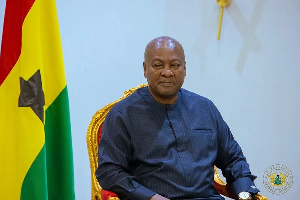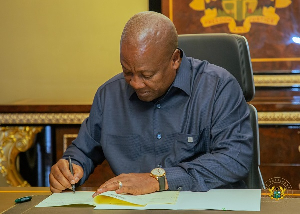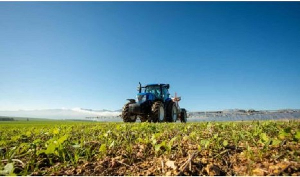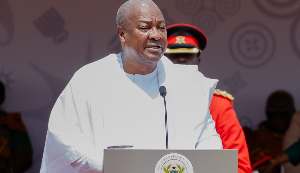Professor Jeffrey Sachs, the Chairman for the Lancet Commission for COVID- 19 on the roll call for countries that have made strides in the fight against the novel Coronavirus and saved their citizenry from the devastating effects of the pandemic, has indicated that Ghana, under the leadership of its President, Nana Addo Dankwa Addo’s has been quite exceptional.
Not only that, the small West African country’s name is boldly written in gold among nations that have used their meagre financial resources and under-resourced health systems compared to giant nations such as the United States of America, United Kingdom, Italy, Spain, Canada, Germany, South Africa among others, to achieve excellence in preventing the further spread of COVID-19.
Ghana’s performance and political leadership, as well as that of other nations in the fight against the pandemic, came under the microscopic eye of the United Nations after it set up a team of health experts to form the Lancet COVID-19 Commission which was launched on July 9, 2020, to among other things, assist governments, civil society, and UN institutions to respond effectively to the COVID-19 pandemic.
The Commission aims to offer practical solutions to the four main global challenges posed by the pandemic: suppressing the pandemic by means of pharmaceutical and non-pharmaceutical interventions; overcoming humanitarian emergencies, including poverty, hunger, and mental distress, caused by the pandemic; restructuring public and private finances in the wake of the pandemic; and rebuilding the world economy in an inclusive, resilient, and sustainable way that is aligned with the Sustainable Development Goals (SDGs) and the Paris Climate Agreement.
The Commission chaired by Prof. Jeffrey David Sachs in a statement on the occasion of the 75th Session of the UN General Assembly published online on September 14, 2020 places Ghana among the highly recognized countries that are doing great in the fight against COVID-19 despite challenges in its health system as well as funding.
Prof. Jeffrey Sachs, who shared some aspects of the Lancet COVID-19 Commission statement via teleconference during the Launch of the one million Personal Protective Equipment (PPE) for frontline health workers by the Millennium Promise Alliance (MPA) in Accra on Wednesday, September 23, 2020, lauded Ghana’s efforts in the fight against the pandemic.
Ghana is placed among 16 other countries in the world as having low transmission compared to highly resourced countries with better health systems like Canada, United Kingdom, Ireland, Germany, Russian Federation and Italy in Moderate transmission, South Africa and Malta in High transmission and the United States of America, Israel, Spain and Brazil in Very High transmission.
“The pandemic is stopped because of the trust by the population, by people following the principles of public health wearing face masks, keeping physical distancing, respecting each other, taking guidance from professionals and the public health service. I only wish my own country [United States of America] were so trusting, disciplined and well-led with such a strong community backbone as you have in Ghana. Ghana is a country my wife, Sonia and I love and admire tremendously. I want to thank Angela Trenton-Mbonde, the UNAIDS Country Director who has done such a wonderful job for her support, the current Director-General of the Ghana Health Service Dr Patrick Aboagye and Dr Nsiah Asare, the Special Advisor on Health to the President, for the guidance and the professionalism that you have shown in making this effort”, he noted.
Ghana with a little push would rise to be classified among nations in suppression state as far as the fight against COVID-19 is concerned.
The Lancet COVID-19 Commission classifies countries according to the number of new cases per day per million population because this is the most straight forward measure of the rate of transmission of the virus.
Lancet COVID-19 Commission classifies a country as being in suppression state if there are 5 or fewer new cases per day in August, provided that the rate of testing is ample, which it defines as at least 20 tests per new case.
The Lancet COVID-19 Commission also classify a country as having low transmission if there are 10 or fewer new cases per million population per day but the country is not in suppression.
It also classifies a country as having moderate transmission with 10-50 new cases per million per day. Furthermore, high transmission is 50-100 new cases per million per day, and very high transmission is 100 or more new cases per million population per day.
Globally, 19 countries achieved suppression in August. They include Taiwan, Province of China, Thailand, Vietnam, Lao People’s Democratic Republic, Cambodia, China, Myanmar, Malaysia, New Zealand, Uganda, Togo, Pakistan, Latvia, Luxembourg, Uruguay, Republic of Korea, Finland, Cuba and Rwanda. 10 out of the 19 countries, according to the Lancet COVID-19 Commission statement, were in the Asia-Pacific region, the highest performing region in the fight against the pandemic.
37 countries including Canada, Italy, Australia, Ireland, United Kingdom, Germany, Russian, Saudi Arabia, Austria and Czech Republic were classified as countries with Moderate transmission while 8 countries including South Africa, Romania, and Malta were classified as countries with a High transmission.
The United States of America, Bolivia, Spain, Israel, Brazil and six other countries incurred very high transmission.
The difference across the countries in the rate of transmission of the virus, according to the Lancet COVID-19 Commission Statement, is stark and remarkable, ranging from less than one new case per million population per day.
“This enormous range underscores that countries with high or very high rates of transmission are failing to undertake sufficient NPIs to control the pandemic. The pandemic can be controlled, as shown clearly by the countries that have largely suppressed it”, the Commission’s statement in part read.
The Executive Director of MPA, Chief Nathaniel Ebo Nsarko, commenting on the report urged countries to make concerted efforts in their fight against the pandemic.
“If we heed to the lessons of history and make concerted efforts individually and collectively to fight this menace, we would come out victorious. If we do not, we would have ourselves to blame,” he noted.
He further admonished countries to make the provision of Personal Protective Equipment (PPEs) to health professionals a priority, especially, the often neglected groups like cleaners, mortuary staff among others.
Additionally, countries should train their health professionals on the proper use of PPEs and conduct emergency response drills such as drills on the proper use of PPEs, disease surveillance and notification simulation exercises as well as the need to strengthen the community-based surveillance systems.
Mr. Nsarko lauded the philanthropic hearts of GSK, Sergey Brin Family Foundation, Jenn Gross OCP Africa and Nancy Best for their support to MPA over the years and urged other individuals and organizations to do same.
General News of Monday, 28 September 2020
Source: rainbowradioonline.com
Nana Addo has been exceptional in coronavirus fight - Lancet Commission
Entertainment












